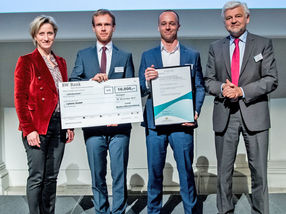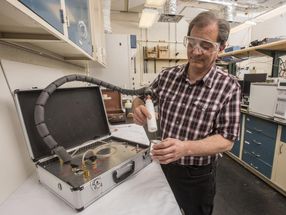European Medicines Agency update on stolen vials of Herceptin
EU national authorities and EMA cooperating in response to criminal activities
This is an update from the European Medicines Agency on the latest information relating to the stolen vials of Herceptin (trastuzumab) in Italy. The vials, some of which were tampered with, were later re-introduced illegally into the supply chain in some countries.
The Italian law enforcement authorities are currently investing the theft. However, the situation goes beyond EU and national current practices for handling quality or product defects; these are extraordinary circumstances driven by criminal activities that require special measures and strong collaboration from authorities across the EU.
National competent authorities are working rapidly to identify all concerned batches and put in place appropriate measures to protect the health of EU citizens. In parallel to the investigations, all vials suspected of being affected are being recalled from the EU market. In addition, Member State authorities are considering temporary measures including quarantine of suspected products or restriction of parallel distribution of the concerned products.
In addition to initial findings concerning Herceptin, vials of two other medicines, Alimta (pemetrexed) and Remicade (infliximab), are now also confirmed as being part of the theft. Samples of batches distributed are being tested by national authorities. So far no evidence has been identified of any tampered vials of Alimta or Remicade being distributed.
Only a small number of vials of the three medicines are thought to be affected and so far there are no reports that any harm has come to patients in relation to the falsified medicines. It is not expected that the precautionary actions will result in shortage of medicines for patients.
Healthcare professionals are reminded to pay extra attention when handling or administering any of the concerned medicines. Any suspicion of tampering or question of authenticity should be reported immediately to the local health authorities.
In relation to Herceptin, a letter has been sent to EU healthcare professionals with advice on identifying falsified Herceptin vials, this including:
- Batch numbers and expiry dates on most vials do not match those on the outer package;
- There is liquid present in some vials of Herceptin powder for solution (Herceptin is a white to yellow powder);
- Evidence of tampering with the rubber stoppers, crimping caps or lids;
- Falsified vials are labelled as ‘Italian Herceptin® 150 mg’ (may have been re-labelled and re-packaged in the local language).
New information has become available in relation to concerned batches.
For Herceptin, in addition to batch numbers H4311B07, H4329B01, H4284B04, H4319B02, H4324B03, H4196B01, H4271B01, H4301B09 and H4303B01, previously communicated, the following batch numbers are now also confirmed to be concerned: H4143B01, H4293B01, H4180B01 and N1010B02.
For Alimta, the following batch numbers are known to be concerned: C134092E, C021161E and C160908C.
For Remicade, the following batch numbers are known to be concerned: 3RMA66304, 3RMA67102, 3RMA68106 and 3RMA67602.
This is based on information available at present and will be updated as the situation evolves.
Falsified medicines must not be used because they cannot be considered safe or effective.
Patients who have any concerns should speak to their doctors who are best placed to confirm the authenticity of their medicine and assess their condition.
The EMA is monitoring the situation closely and will provide updates as appropriate.

















































